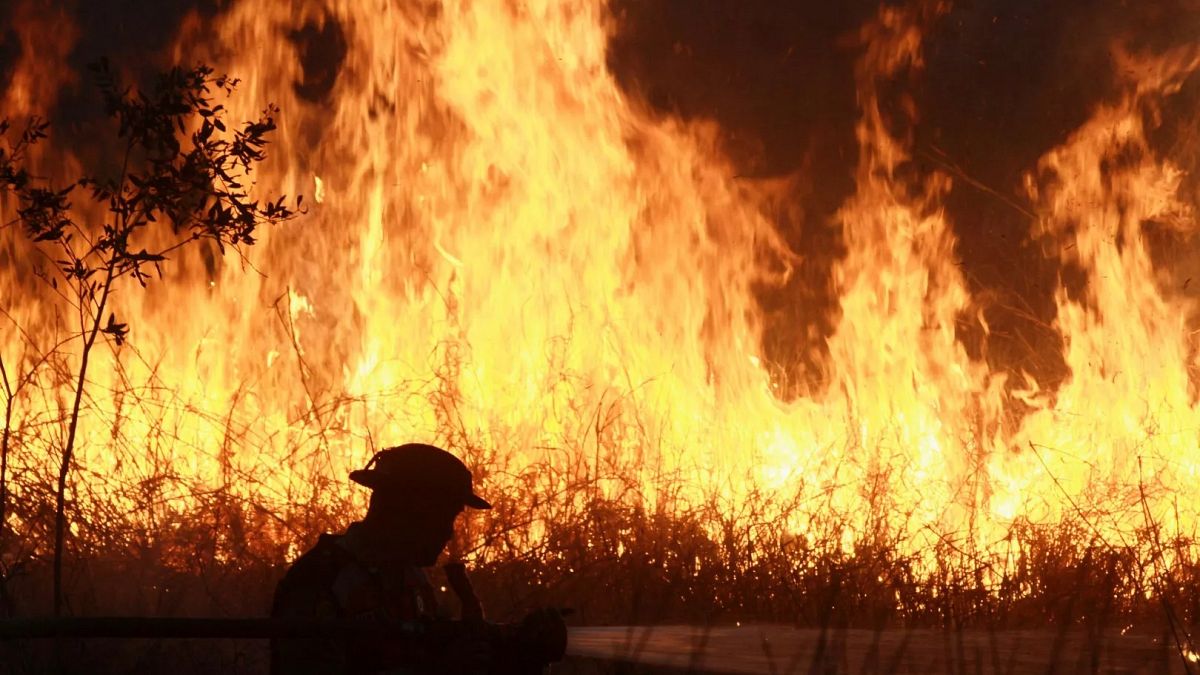

In a world where environmental challenges are becoming increasingly pronounced, understanding the interconnected nature of these issues and our collective responsibility is crucial. Each day brings new developments and insights as we work together to address and adapt to changes in our environment. Today, we turn our attention to three different parts of the world—Indonesia, Greece, and Barcelona—each experiencing its unique challenges yet contributing to a shared narrative about our environment.
In Indonesia, efforts to tackle forest fires have taken a significant step forward. Police have arrested 44 individuals suspected of igniting fires that are now spreading a hazardous haze across the region. The National Disaster Mitigation Agency has noted that these fires are frequently set illegally, often with the intention of clearing land for planting. This practice underscores a complex intersection of human behavior and environmental impact, where traditional methods of land management have manifested in a manner that poses serious risks to air quality and public health.
Meanwhile, in Greece, the battle against wildfires continues as a firefighting helicopter tragically crashed into the sea while attempting to collect water. The immediate danger posed by these fires is compounded by underlying climate conditions. According to a 2024 report from the EU’s Copernicus Climate Change Service, Europe is witnessing the fastest-rising temperatures on the planet. The continent has experienced warming at twice the pace of the global average since the 1980s. This rapid change in climate not only heightens the risk of wildfires but also exacerbates the challenges in managing such natural disasters as they become more frequent and intense.
In Barcelona, residents are increasingly concerned about the impact of sea level rise and severe storms reshaping their cherished beaches. As these coastal changes accelerate, they raise profound questions about the future of local tourism, a vital component of the city’s economy and cultural vibrancy. This evolving coastal transformation reminds us of the delicate balance between human activity and natural processes, where waterfronts that once offered recreation and livelihood are now reminders of nature’s unpredictable power.
While these events highlight distinct issues across different regions, they collectively emphasize the pressing need for mindful environmental stewardship and innovation. In Indonesia, the efforts to address illegal land clearing practices could involve integrating more sustainable agricultural practices that protect natural ecosystems while supporting local economies. Continued investment in research and international cooperation to share successful models is crucial in turning these challenges into opportunities for positive change.
In Greece, enhancing the resilience of communities against wildfires could include not only advancing firefighting techniques but also increasing public awareness about preventative measures. Encouraging responsible land management, investing in climate-resilient infrastructure, and promoting the use of early warning systems can greatly enhance preparedness and response strategies.
As for Barcelona, adapting to rising sea levels and stronger storms will require innovative approaches to coastal management. This could involve blending engineering solutions with natural defenses, such as the restoration of dunes and wetlands, to attenuate wave energy and protect shorelines. Moreover, community engagement in decision-making processes can ensure that solutions align with local needs and values, thereby fostering a sense of shared responsibility and empowerment.
Across all these scenarios, the path forward is guided by cooperation, knowledge sharing, and an unwavering commitment to sustainability. From policy-makers to local communities, everyone plays a pivotal role in crafting a future where both humanity and nature can thrive harmoniously. As we reflect on these issues, a mindfully balanced outlook helps us appreciate the interconnectedness of our world and the importance of nurturing our planet with regard and reverence.
Ultimately, facing these environmental challenges with calm resolve and a positive perspective inspires hope and galvanizes action towards sustainable solutions. By learning from each other’s experiences and working collaboratively, we can navigate the complexities of our changing environment with dignity and grace, stepping steadily towards a healthier planet for future generations.
Source: {link}
